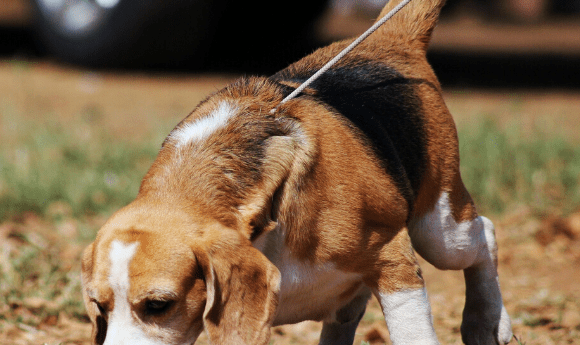Man’s best friend to the rescue! Dogs could be taught to ‘sniff out’ coronavirus

Researchers are investigating whether dogs could be trained to detect COVID-19, in a bid to halt the spread of the disease.
Research has previously demonstrated that dogs ‘pawesome’ sense of smell can be utilized to detect a variety of diseases, including cancer, diabetes and Parkinson’s disease. It is thought that dogs can sense these diseases due to their ability to discern minute changes in compounds excreted by humans.
Now, in collaboration with Durham University (UK) and the London School of Hygiene and Tropical Medicine (LSHTM; UK), the charity Medical Detection Dogs (Milton Keynes, UK) hopes to train dogs to detect individuals with COVID-19, even in asymptomatic cases.
If you would like to keep up to date with our content on coronavirus, you can sign up for our site here, where you can subscribe to our newsletters for free!
The team doesn’t believe they are barking up the wrong tree in this case; their collaborative efforts recently proved that man’s best friend can be trained to detect malaria – in line with the World Health Organization’s (Geneva, Switzerland) diagnostic standards.
“We know that other respiratory diseases, like COVID-19, change our body odor so there is a very high chance that dogs will be able to detect it. This new diagnostic tool could revolutionize our response to COVID-19 in the short term, but particularly in the months to come, and could be profoundly impactful,” explained James Logan (LSHTM).
 Could artificial intelligence be the key to fighting coronavirus?
Could artificial intelligence be the key to fighting coronavirus?
Scientists are utilizing artificial intelligence to develop new solutions to the coronavirus pandemic.
The dogs are currently undergoing intensive training, and it is hoped they will be deployed in as little as 6 weeks to help battle the spread of COVID-19. The team has notified the government in order to identify how the four-legged fighters can best be utilized.
The dogs are being trained at the charity’s training center, where they are given samples to sniff and taught to indicate when a positive COVID-19 sample is present. Additionally, the clever canines are also able to detect small changes in external body temperature, meaning they can potentially indicate if an individual is experiencing a fever – a common COVID-19 symptom.
“In principle, we’re sure that dogs could detect COVID-19. We are now looking into how we can safely catch the odor of the virus from patients and present it to the dogs,” commented Claire Guest, the Co-Founder of Medical Detection Dogs.
It is hoped that the COVID-19 detection dogs could be an essential part of the strategy at the tail end of the pandemic, particularly for the identification of returning travelers at airports. They could also be stationed in public spaces to quickly detect infected individuals in an effort to prevent the re-emergence of COVID-19.